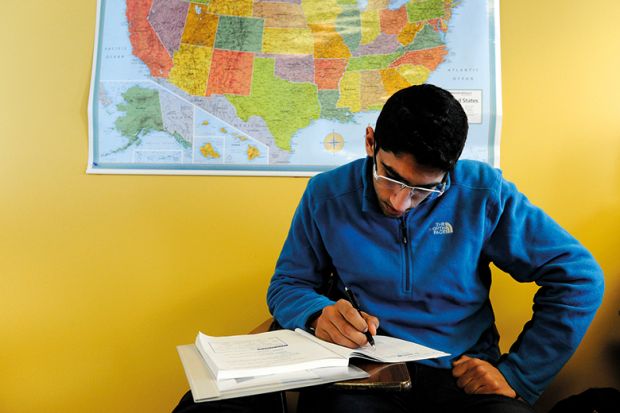US universities’ ties with Middle Eastern states are coming under increasing scrutiny, threatening to accelerate the decline of such links and leaving campuses facing a mounting administrative burden.
From the US government end, the renewed focus is a side-effect of the White House’s strategy for blocking China from accessing cutting-edge US research, which has seen universities receiving demands to produce records of all foreign transactions.
Beyond China, two of the countries most likely to figure in these documents are Saudi Arabia and Qatar. These are already the targets of politically conservative organisations, which have expressed concerns about the monarchies’ reported links to religious extremism.
Separate analyses by the Daily Caller news site and the Clarion Project advocacy group have estimated Qatar as the leader, investing more than $1 billion (£772 million) over five years in US universities.
Both analyses put the five-year Saudi investment in US universities at about $600 million. As for China, the Clarion Project estimates $600 million, while the Daily Caller count is closer to $400 million.
Such critics have described the payments as part of secretive influence campaigns needing greater public exposure. US universities, however, describe the money as consisting largely of payments by enrolled foreign students, payments related to the operations of branch campuses in the Gulf, and donations.
Steven Bloom, director of government and public affairs at the American Council on Education, the chief US higher education lobby group, said that the US government was potentially burying campuses in paperwork.
In federal letters to US campuses, Mr Bloom said, the administration appears to have begun overlooking the $250,000 threshold set by a 1980s law requiring US universities to declare foreign revenue to the government, and has instead demanded complete accounting for all foreign payments.
“It’s enormously burdensome and costly,” Mr Bloom said.
Middle Eastern nations currently host at least a dozen branch campuses of US universities, mostly in Qatar and the United Arab Emirates. Much of Saudi Arabia’s expenditure, by contrast, involves the 40,000 students that it sends to college in the US. Saudi financial support to US universities also includes various investments in research and in cultural projects such as the Prince Alwaleed bin Talal Center for Muslim-Christian Understanding at Georgetown University.
Concerns about such ties peaked last year when Saudi dissident Jamal Khashoggi was killed inside the Saudi consulate in Istanbul. Harvard University and the Massachusetts Institute of Technology were among institutions pressured to respond publicly. MIT eventually decided against any major changes, while Harvard rescinded a promise to reserve 800 seats for Saudi students in a summer school programme.
But Nathan Brown, professor of political science and international affairs at George Washington University, said that efforts to publicise ties between US universities and their partners in Qatar and Saudi Arabia were more likely to aggravate anxieties on the other end.
That’s because both Qatar and Saudi Arabia, Professor Brown said, were growing tired of their massive investments in US higher education, finding them unable to produce the political influence and reputational gains they seek.
“At least on the Saudi side, they’re a little bit frustrated that they’ve given a lot of money to create chairs at universities and it doesn’t seem to translate into much influence,” Professor Brown said. Qatar has turned to the Rand Corporation to improve its school systems, he said, leaving its US university partnerships to shrink in number.
US universities were also growing discouraged, Professor Brown said, because their faculty – especially those involved in social science research – found it difficult to work in the restrictive environments of their Middle Eastern host nations.
Register to continue
Why register?
- Registration is free and only takes a moment
- Once registered, you can read 3 articles a month
- Sign up for our newsletter
Subscribe
Or subscribe for unlimited access to:
- Unlimited access to news, views, insights & reviews
- Digital editions
- Digital access to THE’s university and college rankings analysis
Already registered or a current subscriber? Login








